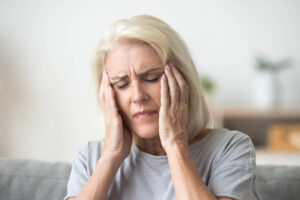How Much Protein Do YOU Eat Daily?
Nowadays, everyone is talking about protein. There are plenty of people on social media fully documenting their personal quest to hit a new protein goal, as well as touting the benefits of eating more (protein, again). But it’s still worth discussing what the actual signs are that you might not get enough of this macronutrient.
According to Amy Goodson, MS, RD, LD, CSSD, a well-known registered dietitian and consultant in the Dallas-Fort Worth area, wellness and sports nutrition give us a great insight into the matter. While most of us get our minimum protein needs, we could definitely benefit from a higher protein intake.
“Specific groups, such as older adults, athletes, as well as those recovering from illness or injury, or even people trying to lose weight, automatically have higher protein needs.” Goodson also explained that protein needs depend on activity level, age, body weight, and health goals. Not getting enough of them can drastically impact how our bodies function and feel. Here are some of the most important signs you might not get enough protein:

You feel tired all the time
Fatigue is by far one of the most common yet overlooked signs of inadequate protein intake. Protein offers the much-needed amino acids required to build enzymes, hormones, neurotransmitters, as well as other molecules that keep your energy systems running very smoothly.
When you don’t get enough protein, your body breaks down muscle to get the needed amino acids. This can lead to muscle wasting, as well as decreased physical endurance, which can show up as general fatigue, especially in the afternoons or post-light activity.
Moreover, protein is great for regulating blood sugar. A meal or even a snack rich in protein slows digestion, keeping energy levels steady. Without it, you could find yourself riding in a Montagne Rousse of energy spikes and crashes on a daily basis.
You recover too slowly from exercise
Exercise is known to break down muscle fibers, and so protein is much-needed to repair and rebuild them. If you don’t get enough of it, your muscles can’t truly recover between workouts, which could lead to soreness that lingers way longer than it should.
Athletes and casual exercisers who regularly train are known to need a bigger protein intake than any other sedentary person. A lack of protein can easily impair muscle synthesis, postpone healing, but also increase your risk of injury. In case your post-gym fatigue lasts for many days, and you notice your strength and endurance are the same, then you should add more protein to your diet.
You have thinning hair and brittle nails
Hair and nails are mainly made of keratin, a specific type of protein. When your body doesn’t get the needed dose of protein, it starts prioritizing other essential functions, such as repairing organs and producing enzymes over nonessential ones, such as growing hair and strengthening nails.
This also means your hair can become thinner, drier, possibly even fall out, as your nails can become brittle and break more easily. These are physical signs that your body might not have the raw materials it requires to keep structural integrity in places that aren’t important for immediate survival. Protein deficiencies that are related to hair and nail health are often way more noticeable over time, so they might represent early red flags that you’re not properly consuming enough over weeks or months.
You’re constantly getting sick
Protein is fairly important for building and keeping a healthy immune system. Antibodies, immune cells, and signaling molecules need protein for their structure and function. In case your diet lacks adequate protein, your immune defenses can weaken, which makes you more susceptible to colds, flu, as well as infections.
As a matter of fact, research has proven that protein-energy malnutrition drastically impairs immunity but also increases the risk of illness. If you have been feeling as if you are catching every single bug that goes around, or you struggle to bounce back from minor infections, then it’s time to check your protein intake.
You’re always hungry
Protein is known to be extremely satiating. In fact, compared to carbohydrates or fats, protein helps you feel fuller for a longer period of time, which is exactly why high-protein diets are often advised for weight management. Without the necessary protein dose, your meals could be a bit unsatisfying, which can lead to increased snacking, overeating, and constant cravings.
This perpetual hunger can be your body’s way of signaling a nutritional imbalance. In case you find yourself reaching for more food right after meals, especially if those meals are quite low in protein, your body could be simply asking you to provide it with a bit more of what is missing. Adding a proper source of protein to every single meal, such as eggs, Greek yogurt, tofu, legumes, or lean meats, can drastically improve satiety and reduce useless snacking.
You heal wounds very slowly
Protein is mandatory when it comes to tissue repair. After any kind of injury, from cuts, scrapes, to surgical wounds, your body starts ramping up its need for protein to rebuild damaged tissue, as well as synthesize new cells. Slow wound healing, or even wounds that reopen easily, can stand as an indicator of protein deficiency.
This is even more so important for postoperative patients, older adults, as well as individuals currently recovering from injuries. Without the much-needed protein, the healing process is delayed, and recovery becomes prolonged.

You constantly experience swelling
Edema and swelling, especially in hands, feet, legs, or even the abdomen, can be one of the subtlest signs of severe protein deficiency. This happens because proteins, especially albumin, keep the balance of fluids in your blood vessels.
When albumin levels drop, fluid can easily leak into surrounding tissues, which can cause swelling. This particular condition is definitely more common in severe cases of protein deficiency, like those with malnutrition or specific chronic illnesses. However, mild swelling can also happen when intake is always too low, and it could be misattributed to other issues (salt intake, standing too long).
Takeaway
Even if it’s quite rare for healthy individuals in well-developed countries like ours to suffer from severe protein deficiency, it’s still surprisingly common to fall short of optimal intake. This goes even more if you are more active, aging, or simply trying to lose weight.
Some of the subtlest signs can include fatigue, slow recovery, brittle nails, as well as constant illness, which are your body’s way of waving a red flag. The solution doesn’t reside in piling on protein shakes, even if they can definitely help. It’s more about incorporating quality protein sources throughout the day in a more balanced manner.
Protein is the most efficient in making you feel full
Protein plays a huge role in helping people feel full. “Those who consume diets higher in protein (around 30% of daily calories from protein) feel way more satisfied, which automatically eliminates mindless snacking and overeating throughout the day.
This also means consuming fewer calories overall. On top of everything, protein plays an immense role in building muscle and fueling muscle recovery, right after physical activity.
A well-balanced diet that can include high-quality protein and other nutrient-rich foods is an important component for strength and overall health.
If you found this article useful, we also recommend checking: 10 Freezer Foods for Emergency Meals You Should Always Have on Hand







